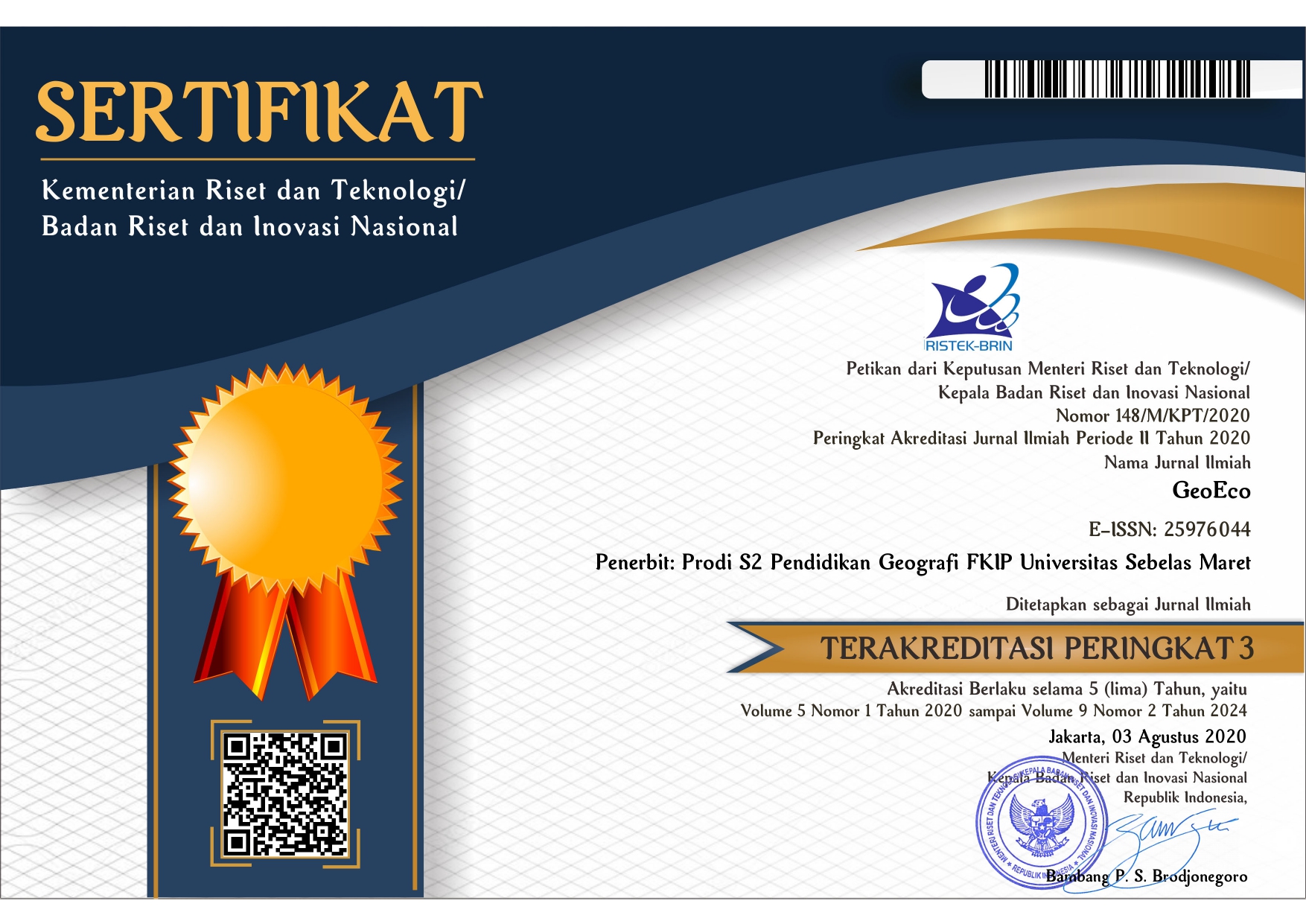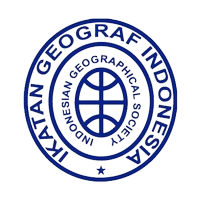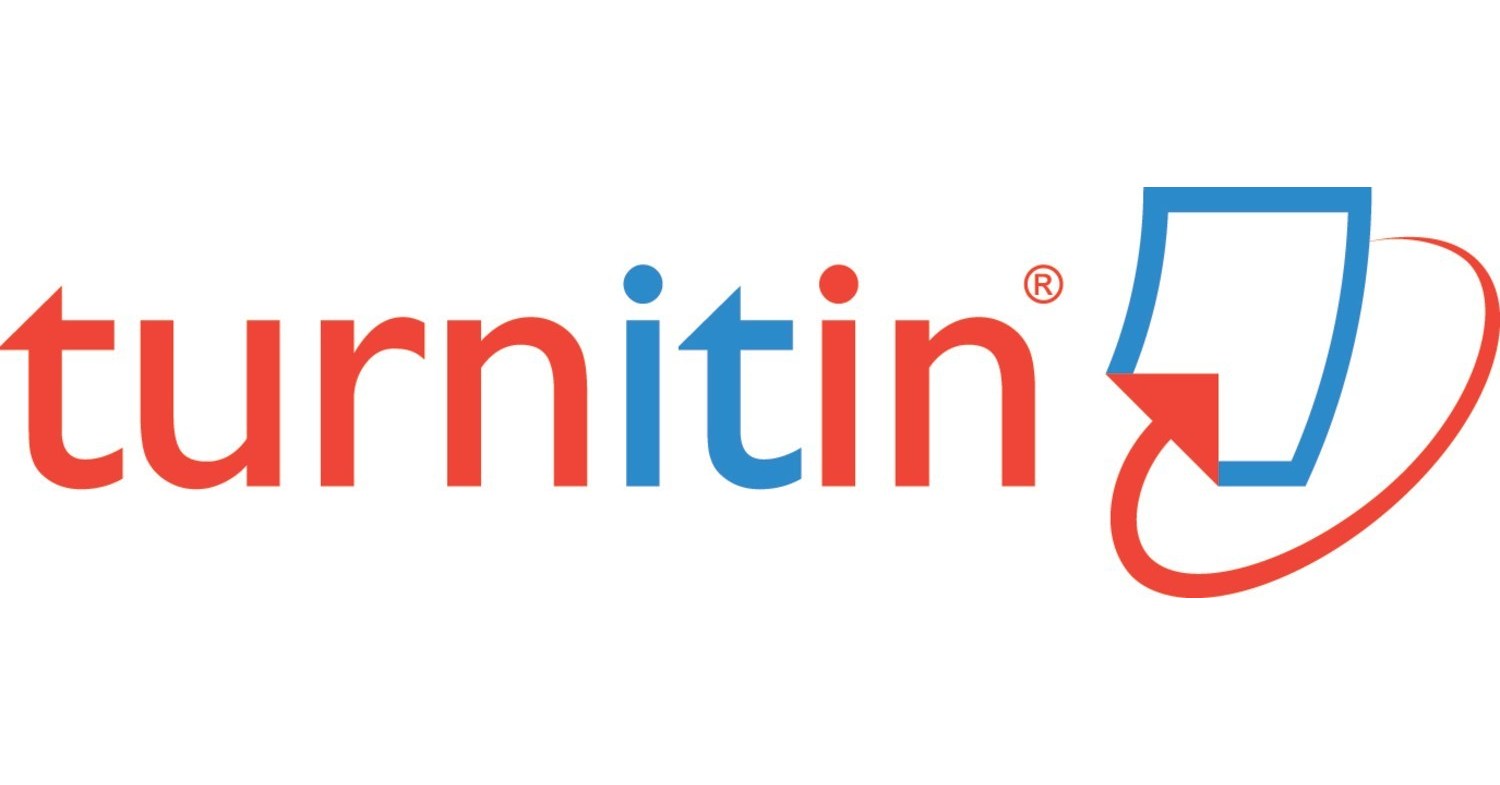DEVELOPMENT OF GEOGRAPHY LEARNING TOOLS BASED ON THE INDONESIAN NATIONAL QUALIFICATION FRAMEWORK (KKNI) CURRICULUM
Abstract
The development of learning tools is one of the efforts to improve the quality of education as an effort to provide complete and systematic learning tools. One of them is the development of learning tools including (RPS) Semester Learning Plans and (RTM) Student Assignment Designs according to the KKNI in introductory geography courses. The development of learning tools in this study used the ADDIE (Analysis, Design, Development or Production, Implementation or Delivery, and Evaluations) model, with data collection instruments through questionnaires and validation sheets with descriptive analysis techniques. The results of the needs analysis showed that 74.4% needed an RPS adjustment and 78.9% needed the development of teaching materials in a social study program (PIPS), while the evaluation of the development validity (RPS) of Semester Learning obtained an average score of 3.59 while for the average instrument assessment (RTM) the Student Assignment Plan was obtained. the mean score is 3.75 with a mean value of 3.67 with valid criteria. These results indicate that the development of learning tools is following the KKNI and is ready to be implemented in learning activities.
Keywords
Full Text:
PDFReferences
Andriani, D.A., & Dewi, R.M. (2021). Pengembangan Media Pembelajaran Tebak Kata Pada Materi Bank Sentral, Sistem Pembayaran dan Alat Pembayaran. Jurnal Pendidikan Ekonomi (JUPE), 9(2), 65–67.
Arikunto.S. (2019). Prosedur Penelitian Suatu Pendekatan Praktek. PT. Rineka Cipta.
Astuti, Waluya, S. B., & Asikin, M. (2019). Strategi Pembelajaran dalam Menghadapi Tantangan Era Revolusi Industri 4.0. Prosiding Seminar Nasional Pascasarjana UNNES, ISSN: 2686-6404.
Borg, W R & Gall, M D. (2005). Educational research: an introduction, Fourth Edition. Longman. Inc.
Budiman, H. (2017). Peran Teknologi Informasi Dan Komunikasi Dalam Dunia Pendidikan. Jurnal Pendidikan Islam P.ISSN: 20869118 E-ISSN: 2528-2476, 8(1).
Carlson, J., Davis, E. A., & Buxton, C. (2014). a worldwide organization for improving science teaching and learning through research. Supporting the Implementation of NGSS through Research.
Cesar, A. and Gaible, E. (2014). Development of Multimedia Material: Second Edition (Second Edition).
Clement, D. H. (2007). Curriculum Research: Toward a Framework for “Research-based Curricula. . Journal for Research in Mathematics Education, 38(1), 35–70.
Etistika, Y. W. etc. (2016). Transformasi Pendidikan Abad 21 Sebagai Tuntutan Pengembangan Sumber Daya Manusia Di Era Global. Prosiding Seminar Nasional Pendidikan Matematika 2016, UKM., 1.
Ginaya, G. etc. (2018). The Indonesia National.Qualification Framework Based-curriculum and the Graduate Competence Standard: A Case Study in Travel and Tourism Business Study Program. In Proceedings of the 1st International Conference on Recent Innovations (ICRI 2018.
Gufron A, H. (2017). Pengembangan Mobile Learning Bagi Pembelajaran. JKKP. Jurnal Kesejahteraan Keluarga Dan Pendidikan Doi.Org/10.21009/ JKKP.042.07 E-ISSN : 2597-4521.
Jamaluddin, etc. (2018). Pengembangan Perangkat Perkuliahan Berbasis Pendekatan Saintifik di Program Studi Magister Pendidikan. Jurnal Ilmiah Profesi Pendidikan P-ISSN: 2502-7069; e-ISSN: 2620-8326, 3(1), 30–36.
Maba, W. (2016). Kurikulum Sarjana Berbasis KKNI Mengubah Mindset Pengajaran Menjadi Pembelajaran. Jurnal Bakti Saraswati, 5(1), 85–87.
Marwiyah. (2011). Urgensi Perencanaan Dalam Kegiatan Pembelajaran. Jurnal Ulul Albab Makasar : UMI, 65–81.
Mauliddia, H. (2017). Earthcomm-based Electronic Module: The Learning Material of Natural Resource Management Wisdom. IOP Conf. Series: Earth and Environmental Science Doi:10.1088/17551315/145/ 1/012003.
McGriff, S. J. (2000). Intructional System Desaign (ISD): Using the ADDIE Model, Intrutional System. Penn State.
Muhammad, I. &Ariani S. (2020). The Development of KKNI-Based Curriculum at theArabic Language Education Programs in Indonesian Higher Education. Jurnal Ilmiah Peuradeun, 8(3), 451–474.
Mulyatiningsih, E. (2012). Metode Penelitian Terapan Bidang Pendidikan. Penerbit Alfabeta.
Nugrahadi, E. W., Maipita, I., Ane, L., & Putra, P. D. (2018). Analisis Implementasi Kurikulum Berbasis KKNI di Fakultas Ekonomi UNIMED. Jurnal Niagawan, 7(1), 8–13.
Nurjannah. (2017). Pengembangan Kurikulum Berbasis Kerangka Kualifikasi Nasional Indonesia (KKNI) pada Fakultas Dakwah dan Komunikasi UIN Sunan Kalijaga Yogyakarta. Jurnal Bimbingan Konseling Dan Dakwah Islam, 14(1).
Schwarzer, R. (2002). The General Self-efficacy Scale (GSE). Department of Health. Psychology. Freie Universität.
Siagian, B. A & Siregar, G. N. S. (2018). Analisis Penerapan Kurikulum Berbasis KKNI di Universitas Negeri Medan. Pedagogia. Jurnal Ilmu Pendidikan Https://Doi.Org/10.17509/Pdgia.V16i3.12378, 16(3), 327–342.
Sinuraya, J., Motlan, & Ratelit, T. (2012). Pembelajaran Berbasis Scientifics dalam Mencapai Academic Success Skil. Prosiding SNFA (Seminar Nasional Fisika Dan Aplikasinya) E-ISSN. 2548-8325 / P-ISSN 2548-8317.
Solikhah, I. (2015). KKNI dalam Kurikulum Berbasis Learning Outcomes. Journal of Language, Literature and Teaching, 12(1), 1-22.Journal of Language, Literature and Teaching, 12(1), 1-22., 12(1), 1–22.
Sukartono. (2018). Revolusi Industri 4.0 dan Dampaknya Terhadap Pendidikan Indonesia. Surakarta. FIP PGSD Universitas Muhammadiyah Surakarta.
Suradi, A. & A. A. (2019). Aktualisasi Kurikulum Kerangka Kualifikasi Nasional Indonesia: Studi di Perguruan Tinggi Keagamaan Islam Swasta Bengkulu. Nuansa: Jurnal. Studi .Islam Dan Kemasyarakatan, 12(2), 232–244.
Trilling, B. and F. C. (2012). 21st Century Skills: Learning for Life in Our Times. K-12 General.
Refbacks
- There are currently no refbacks.












.png)

